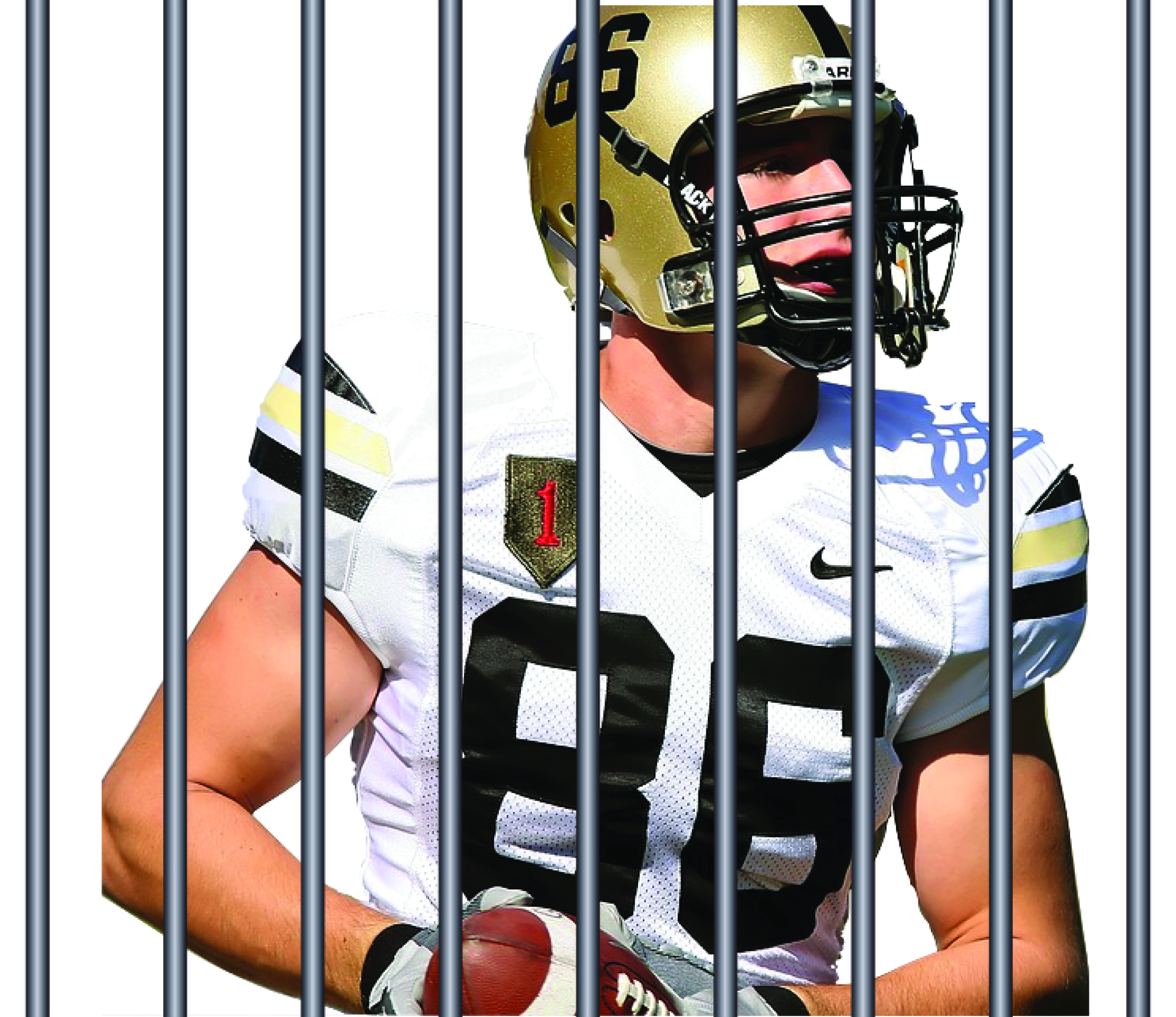College athletes are an extremely public face, as sporting events are some of the most popular events at a university. Crowds of thousands cheer, and press surrounds the team at each game.
However, sexual assault and rape has become increasingly frequent among college athletes. According to a study conducted by the Washington Post, 54 percent of collegiate and intramural student-athletes admit to coercing a partner into sex. In comparison, 38 percent of non-athletic students admit to coercing a partner into sex.
Recently, three Michigan State football players have faced ramifications for accusations of sexual misconduct. According to the New York Post, the players have been banned from team activities and on-campus housing while the investigation takes place.
There has also been an ongoing scandal involving members of the Baylor University football team. According to Sports Day News, there have been 125 reports of sexual assault by players of the team from 2011 to 2015.
Kristian Eanes, who plays for Northwood’s girls’ basketball team, speculates that these actions may be attributed to the popularity of the offenders.
“Athletes are the popular ones on campus,” Eanes said. “They think that they have the power to do what they want, because they’re the people who make the money for the campus other than tuition.”
On the other hand, senior swimmer Leah Nelson believes that these actions are attributed to the nature of the offenders.
“Sportsmen are more competitive, which I know doesn’t relate, but maybe in one way, they could be more aggressive naturally,” Nelson said.
Depending on the state, the maximum punishment for sexual assault can be one to seven years in prison. However, in some cases of sexual assault involving college athletes, sentences are lightened.
This is exemplified in the case of Brock Turner, a former Stanford swimmer who was convicted of sexually assaulting an unconscious woman. According to CNN, Turner only served three months of his six month sentence in a California jail.
Some students believe that lighter sentences for charges of sexual assault occur because athletes are a figure of influence.
“People see them as individuals of value who made a mistake, as opposed to dangerous folks who committed a felony,” senior Nikolai Mather said. “It also has a lot to do with privilege. A lot of people who are involved in athletics are straight, white men. That can have a lot of connotations in society, which would lead them to get lighter sentences.”
Nelson also agrees that the value of the athletes can affect their sentence.
“It’s definitely unfair, but I think a lot of times if there are students being talented and having a future, they are more likely to get out earlier or have a lighter sentence,” Nelson said. “They are needed for a team that could be making money for the school.”
According to the Pennsylvania Coalition Against Rape (PCAR), when assailants are figures of power and influence, it can be difficult for survivors to come forward about their assault. They fear that the offender’s crimes may not be justified or that they would be accused of being untruthful.
Steps are being taken by organizations such as RAINN (Rape, Abuse & Incest National Network) and PACT5 to prevent assault from happening in the first place. These steps include educating college students on alcohol and campus safety, how to detect warning signs of assault and how to keep others safe who may be at risk.
Along with these methods, sophomore Rocky Andrews believes that consent is important in the prevention of sexual assault and rape.
“[It’s] a question of consent; just affirm that the other person definitely wants to engage,” Andrews said. “I think that once a certain level of drunkenness has been reached, consent isn’t really possible. If two people are black-out drunk, I don’t think that’s a safe situation for anybody.”
Gym teacher Cameron Vernon believes that education is also an effective mean of prevention.
“Here in high school it’s in our curriculum,” Vernon said. “We teach kids about sexual assault, violence and what healthy relationships look like. In high school, peers need to demonstrate healthy relationships, and when we see people being mistreated, we need to speak up about it.”
– By Cameron Bernstein



